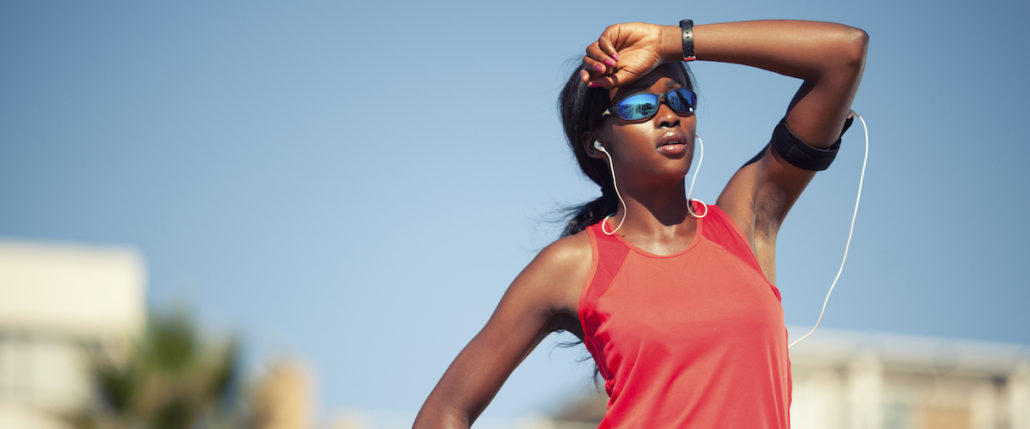It’s hot! Know the signs of heat-related illness.

Hot weather causes more than 600 deaths in the U.S. every year and leads to an additional 2,800 hospitalizations.
With warmer weather already here and the hottest days of the season yet to come, it’s important to pay special attention to your body. When the body heats too rapidly to cool itself properly – or when too much fluid or salt is lost through dehydration or sweating – body temperature rises. This can result in a heat-related illness or death if left untended.
Also know that age, obesity, fever, dehydration, heart disease, mental illness, poor circulation, sunburn, and prescription drug and alcohol use can play a role in whether a person can cool off enough in very hot weather.
To be safe and keep those around you safe on extremely hot and humid days, know the symptoms of heat-related illness and what you can do to prevent an emergency.
Heat cramps
Heat cramps may be the first sign of heat-related illness and may lead to heat exhaustion or stroke.
Symptoms
- Painful muscle cramps and spasms usually in legs and abdomen.
- Heavy sweating.
First aid
- Apply firm pressure on cramping muscles or gently massage to relieve spasm.
- Give sips of water unless the person complains of nausea, then stop giving water.
Heat exhaustion
Symptoms
- Heavy sweating.
- Weakness.
- Cool, pale or clammy skin.
- Fast, weak pulse.
- Possible muscle cramps.
- Dizziness.
- Nausea or vomiting.
- Fainting.
First aid
- Move person to a cooler environment.
- Lay person down and loosen clothing.
- Apply cool, wet cloths to as much of the body as possible.
- Fan or move victim to an air conditioned room.
- Offer sips of water.
- If person vomits more than once, seek immediate medical attention.
Heat stroke
Symptoms
- Altered mental state.
- One or more of the following symptoms: throbbing headache, confusion, nausea, dizziness or shallow breathing.
- Body temperature above 103 degrees Fahrenheit.
- Hot, red, dry or moist skin.
- Rapid and strong pulse.
- Fainting or loss of consciousness.
First aid
- Heat stroke is a severe medical emergency. Call 911 or get the victim to a hospital immediately. Delay can be fatal.
- Move the victim to a cooler, preferably air-conditioned, environment.
- Reduce body temperature with cool cloths or bath.
- Use fan if heat index temperatures are below the high 90s. A fan can make you hotter at higher temperatures.
- Do NOT give fluids. (It may lead to pulmonary edema.)
How to stay safe during hot weather
Everyone should take these steps to prevent heat-related illnesses, injuries and deaths:
- Stay in an air-conditioned indoor location as much as possible.
- Drink plenty of fluids even if you don’t feel thirsty.
- Schedule outdoor activities carefully.
- Wear loose, lightweight, light-colored clothing and sunscreen.
- Pace yourself.
- Check on a friend or neighbor and have someone do the same for you.
- Never leave children or pets in cars.
- Check the local news for health and safety updates.




